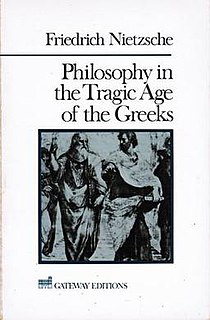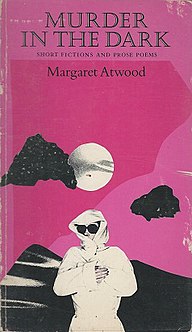
The Circle Game is a poetry collection written by Canadian author Margaret Atwood in 1964. The book was a highly acclaimed work of poetry and was the winner of the 1966 Governor General's Award.

The Circle Game is a poetry collection written by Canadian author Margaret Atwood in 1964. The book was a highly acclaimed work of poetry and was the winner of the 1966 Governor General's Award.
The titular poem "The Circle Game" is about the famous children's game also known as "ring around a rosie" which at first glance seems to be an innocent and fun kid's game, but if you really listen and think about it, it reveals a deeper, disturbing truth to this game.
As in most of Atwood's works, this collection of poetry explores many tensions or dualities such as the tensions between man and woman, perception and reality, and many more. This collection focuses particularly on the tension between perception and reality where at first glance something may seem harmless, maybe even friendly, but upon deeper inspection you discover a usually dark, sad, or disturbing truth.
| This article about a collection of written poetry is a stub. You can help Wikipedia by expanding it. |

Marina Ivanovna Tsvetaeva was a Russian and Soviet poet. Her work is considered among some of the greatest in twentieth century Russian literature. She lived through and wrote of the Russian Revolution of 1917 and the Moscow famine that followed it. In an attempt to save her daughter Irina from starvation, she placed her in a state orphanage in 1919, where she died of hunger. Tsvetaeva left Russia in 1922 and lived with her family in increasing poverty in Paris, Berlin and Prague before returning to Moscow in 1939. Her husband Sergei Efron and her daughter Ariadna Efron (Alya) were arrested on espionage charges in 1941; her husband was executed. Tsvetaeva committed suicide in 1941. As a lyrical poet, her passion and daring linguistic experimentation mark her as a striking chronicler of her times and the depths of the human condition.
Reality is the sum or aggregate of all that is real or existent within a system, as opposed to that which is only imaginary. The term is also used to refer to the ontological status of things, indicating their existence. In physical terms, reality is the totality of a system, known and unknown. Philosophical questions about the nature of reality or existence or being are considered under the rubric of ontology, which is a major branch of metaphysics in the Western philosophical tradition. Ontological questions also feature in diverse branches of philosophy, including the philosophy of science, philosophy of religion, philosophy of mathematics, and philosophical logic. These include questions about whether only physical objects are real, whether reality is fundamentally immaterial, whether hypothetical unobservable entities posited by scientific theories exist, whether God exists, whether numbers and other abstract objects exist, and whether possible worlds exist.
The Theaetetus is one of Plato's dialogues concerning the nature of knowledge, written circa 369 BCE.

Margaret Eleanor Atwood is a Canadian poet, novelist, literary critic, essayist, inventor, teacher, and environmental activist. Since 1961, she has published 18 books of poetry, 18 novels, 11 books of non-fiction, nine collections of short fiction, eight children's books, and two graphic novels, as well as a number of small press editions of both poetry and fiction. Atwood has won numerous awards and honors for her writing, including the Booker Prize (twice), Arthur C. Clarke Award, Governor General's Award, Franz Kafka Prize, and the National Book Critics and PEN Center USA Lifetime Achievement Awards. A number of her works have been adapted for film and television, increasing her exposure.

Wallace Stevens was an American modernist poet. He was born in Reading, Pennsylvania, educated at Harvard and then New York Law School, and he spent most of his life working as an executive for an insurance company in Hartford, Connecticut. He won the Pulitzer Prize for Poetry for his Collected Poems in 1955.

Chainfire is the ninth book in Terry Goodkind's epic fantasy series The Sword of Truth, and the first in a trilogy. It was nominated for the Prometheus Award.
Conversation games are games that require only conversational ability. Conversation games owe their popularity to their ability to be played almost anywhere with almost anyone and for their ability to generate conversation. Their popularity has gained in part due to the hip hop culture and TV shows like Wild 'N Out and Yo Momma. Below are some examples.

The Cartesian circle is a potential mistake in reasoning attributed to René Descartes.

Philosophy in the Tragic Age of the Greeks is an incomplete book by Friedrich Nietzsche. He had a clean copy made from his notes with the intention of publication. The notes were written around 1873. In it he discussed five Greek philosophers from the sixth and fifth centuries BC. They are Thales, Anaximander, Heraclitus, Parmenides, and Anaxagoras. He had, at one time, intended to include Democritus, Empedocles, and Socrates. The book ends abruptly after the discussion of Anaxagoras's cosmogony.
"Odysseus' Scar" is the first chapter of Mimesis: The Representation of Reality in Western Literature, a collection of essays by German-Jewish philologist Erich Auerbach charting out the development of representations of reality in literature. It examines the differences between the two types of writing about reality as embodied by Homer's Odyssey and the Old Testament. In the essay, Auerbach introduces his anti-rhetorical position, a position developed further in the companion essay "Fortunata" which compares the Roman tradition of Tacitus and Petronius with the New Testament, as anathema to a true representation of everyday life. Auerbach proceeds with this comparative approach until the triumph of Flaubert, Balzac and "modern realism".

Double Persephone is a self-published poetry collection written by Canadian author Margaret Atwood in 1961. Atwood handset the book herself with a flat bed press, designed the cover with linoblocks, and only made 220 copies. It was the first publication released by Atwood, and comprises seven poems: "Formal Garden", "Pastoral", "Iconic Landscape", "Persephone Departing", "Chthonic Love", "Her Song", "and "Double Persephone".
"Thirteen Ways of Looking at a Blackbird" is a poem from Wallace Stevens's first book of poetry, Harmonium. The poem consists of thirteen short, separate sections, each of which mentions blackbirds in some way. Although inspired by haiku, none of the sections meets the traditional definition of haiku. It was first published in October 1917 by Alfred Kreymborg in Others: An Anthology of the New Verse and two months later in the December issue of Others: A Magazine of the New Verse.

Mont Blanc: Lines Written in the Vale of Chamouni is an ode by the Romantic poet Percy Bysshe Shelley. The poem was composed between 22 July and 29 August 1816 during Shelley's journey to the Chamonix Valley, and intended to reflect the scenery through which he travelled. "Mont Blanc" was first published in 1817 in Percy Shelley and Mary Shelley's History of a Six Weeks' Tour through a Part of France, Switzerland, Germany and Holland, which some scholars believe to use "Mont Blanc" as its culmination.

Mathematical beauty describes the aesthetic pleasure typically derived from the abstractness, purity, simplicity, depth or orderliness of mathematics. Mathematicians often express this pleasure by describing mathematics as beautiful. They might also describe mathematics as an art form or, at a minimum, as a creative activity. Comparisons are often made with music and poetry.
"We are Seven" is a poem written by William Wordsworth and published in his Lyrical Ballads. It describes a discussion between an adult poetic speaker and a "little cottage girl" about the number of brothers and sisters who dwell with her. The poem turns on the question of whether to account two dead siblings as part of the family.

The Door is a book of poetry by Canadian author Margaret Atwood, published in 2007.

Murder in the Dark is a collection of short fiction by Canadian author Margaret Atwood, published in 1983. Some of the pieces were previously published. The 27 pieces range over a variety of styles, including fictionalized autobiography, parables, travel stories, satires and prose poems. The pieces hold together through their major themes of loss, menace and terror, and men's abuse of power.
Circle game may refer to:

You Are Happy is a 1974 collection of poems by Canadian writer Margaret Atwood.

The Circle is an American reality competition series, produced by Studio Lambert and Motion Content Group which began airing on Netflix in January 2020 that is based on a British TV series of the same name. Alongside the American version of The Circle, Netflix is also launching different versions in France and Brazil, as part of a partnership between Netflix and All3Media. The series bills itself as a game based around social media, with the concept that "anyone can be anyone in The Circle." It has been compared to Big Brother and Catfish in format, as well as Black Mirror episode "Nosedive" with the concept of ratings.